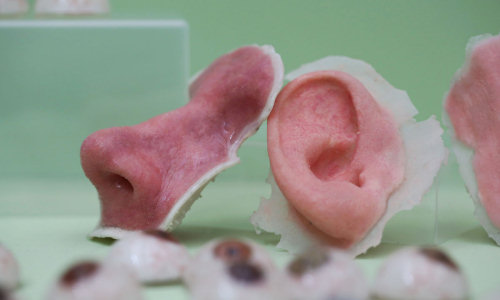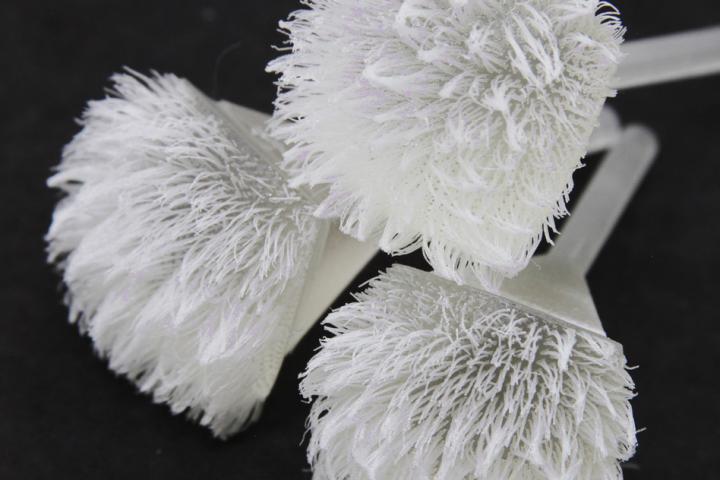3-D printing used to construct everything from art to toys to spare parts for the space station may one day produce human organs at a hospital near you.
A 3-D printed prosthetic nose and ear are seen on display during the 3-D Print show at the Business Design Center in London, on Nov. 8, 2013 – Photographer: Chris Ratcliffe/Bloomberg
The 20-year-old technology uses liquid materials that become hard as they print out three-dimensional objects in layers, based on a digital model. Current medical uses are in dentistry, for hard-material crowns, caps and bridges, as well as prosthetics. Last year, a 3-D printer was used to create a structure from moldable polymer that replaced more than 75 percent of a patient’s skull.
Now, Organovo Holdings Inc. (ONVO) is using 3-D printers to create living tissue that may one day look and act like a human liver, able to cleanse the body of toxins. Drugmakers and cosmetic companies already plan to use 3-D printed human tissue to test new products. Eventually, the technology may help reduce organ shortages and cut transplant rejections as patients receive new organs constructed from their own cells.
“3-D printing is like a new tool set,” said Organovo Chief Executive Officer Keith Murphy. “You can make a living tissue you can grow outside the body. That’s the core of our technology. How can you be smart about doing that?”
Organovo already is preparing to sell strips of liver tissue to drugmakers this year to be used to test toxicity of potential treatments, Murphy said in a telephone interview.
The San Diego-based company’s five- and 10-year goals are first to use a patient’s own cells to print tissue strips that can be used to patch failing organs, and finally to be able to create entire new organs.
Story Source:
The above story is based on materials provided by Bloomberg, Elizabeth Lopatto.




